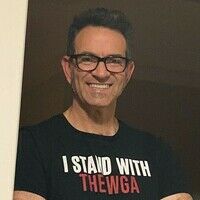After you've completed your latest draft, how do you go about getting notes/feedback?
Do you ask your peers? Professional consultants?
When I was first starting out, I asked just about any writer I knew, which provided me with a wide variety of notes. I figured anybody who knew anything about screenwriting knew more than I did, so why not ask them for their two cents about my script?
Not always the case.
Responses ranged from high praise to meticulously shredding it to bits, and more than a few times there'd be conflicting opinions - one person thought THIS was great, while another thought it was definitely NOT. So whose opinion could I trust?
After much networking and the building/establishing of relationships, and a whole of lot of trial and error, I gradually learned who I could rely on for helpful notes. The number of readers kept shrinking and shrinking; from 20 to 12 to around 6-ish.
That final group consists of writers with writing and analytical skills I truly admire and respect, so I know their notes will be honest and helpful. They won't sugarcoat anything nor will they say my writing is the worst they've ever read and I should just give up and quit now. They'll readily identify what works and what doesn't - for them.
Even those notes will vary from person to person.
This also doesn't mean that I should take their comments as gospel. If one person has a note, I can decide if it's worthwhile. Maybe it works, maybe not. If two or more have the same note, then it might be worth taking into consideration.
A big part of this is learning to trust your gut. It's YOUR script, so you know what's best. Just like the writing itself, it takes time to learn how to develop that skill. You'll be able to take all the notes you get and figure out which ones are the ones you need to listen to.
Side note - even if a note seems wrong to you, there might be something in there that could still help - aka "the note behind the note". Why would the reader say that? It could still be something worth considering.
One last thing - when somebody gives you notes, MAKE SURE YOU THANK THEM FOR DOING IT. Even if you don't agree with a single thing they said. They took time out of their already-busy schedule to do this, so the least you can do is say thanks - and maybe even offer to return the favor if you're so inclined.



1 person likes this
I'm curious, Paul Zeidman, how did you approach networking? Did you go to job fairs? Festivals? Establish relationships online, with people on writing groups?
4 people like this
I have a group of writers/directors/producers that I ask for feedback and I order feedback from companies that I've used in the past, Paul Zeidman. The writers/directors/producers are people who've given me useful feedback from before.
I try to read their scripts as thanks for reading mine. And even if I'm not able to read their scripts right away, I still tell them thanks and let them know how their notes helped me.
2 people like this
Elie - a little of all of it. Mostly through online/social media, and I'm fortunate to live somewhere where there are a lot of writers, so have had some great face-to-face meetups.
When I went to Austin last year, I decided I'd try to talk to people whenever the opportunity arose. And there were a lot of opportunities, so...
2 people like this
James Kicklighter is having an AMA about networking in the Filmmaking/Directing Lounge tomorrow, Elie de Rosen. You can post questions now (www.stage32.com/lounge/directing/Ask-Me-Anything-AMA-Wednesday-6-12-to-T...)
7 people like this
Great question, Paul Zeidman. I've had the same strategy for over a decade. When I have my draft dialed in to my satisfaction, I get 3 pieces of coverage here on Stage 32. Normally, I use an alias on the script so there is no bias if I choose execs I know personally. And yes, I pay for them because the execs deserve to get paid for their time.
Once I get the notes back, I proceed as follows. Every note gets at least some attention. You never know when someone might see a path or have an idea that might work better. If I get the same note from 2 of the 3, I dig in deeper. If I get the same note from all 3, I rework the problem.
After applying the notes and making my changes, I rely on relationships I've built with industry execs, producers, reps to get the script out there.
This approach has never failed me.
3 people like this
Always hated notes from production company low level execs. Addressing them to their satisfaction cost two scripts from being greenlit.
4 people like this
A lot of us young folks are in writers groups on Discord in our little makeshift screenwriting forums. Great places to find fellow writers to script swap with and connect/make friends with fellow industry folk in general!
1 person likes this
Pat Alexander What are these groups' names? Are they open to new members?
1 person likes this
Performing an inexpensive Ptich Sessions with a Producer in your genre is the best way to see where your work is at Paul Zeidman
3 people like this
You're right Paul Zeidman . Never forget to say "please and thank you." Receiving feedback can be a scary thing. I think it's difficult to ease up and to not immediately go into defense position. I like to compare writing projects to programming projects. Feedback should allow you to find out how you can make your project better. A program can never be bug-free and it's the same with a script. If no issues come up during the first review at least, then you've got nothing to improve on. It's also an indication that the reviews haven't been done thoroughly. Of course, at some point, you have to put the lid on the project, but not after the first review.